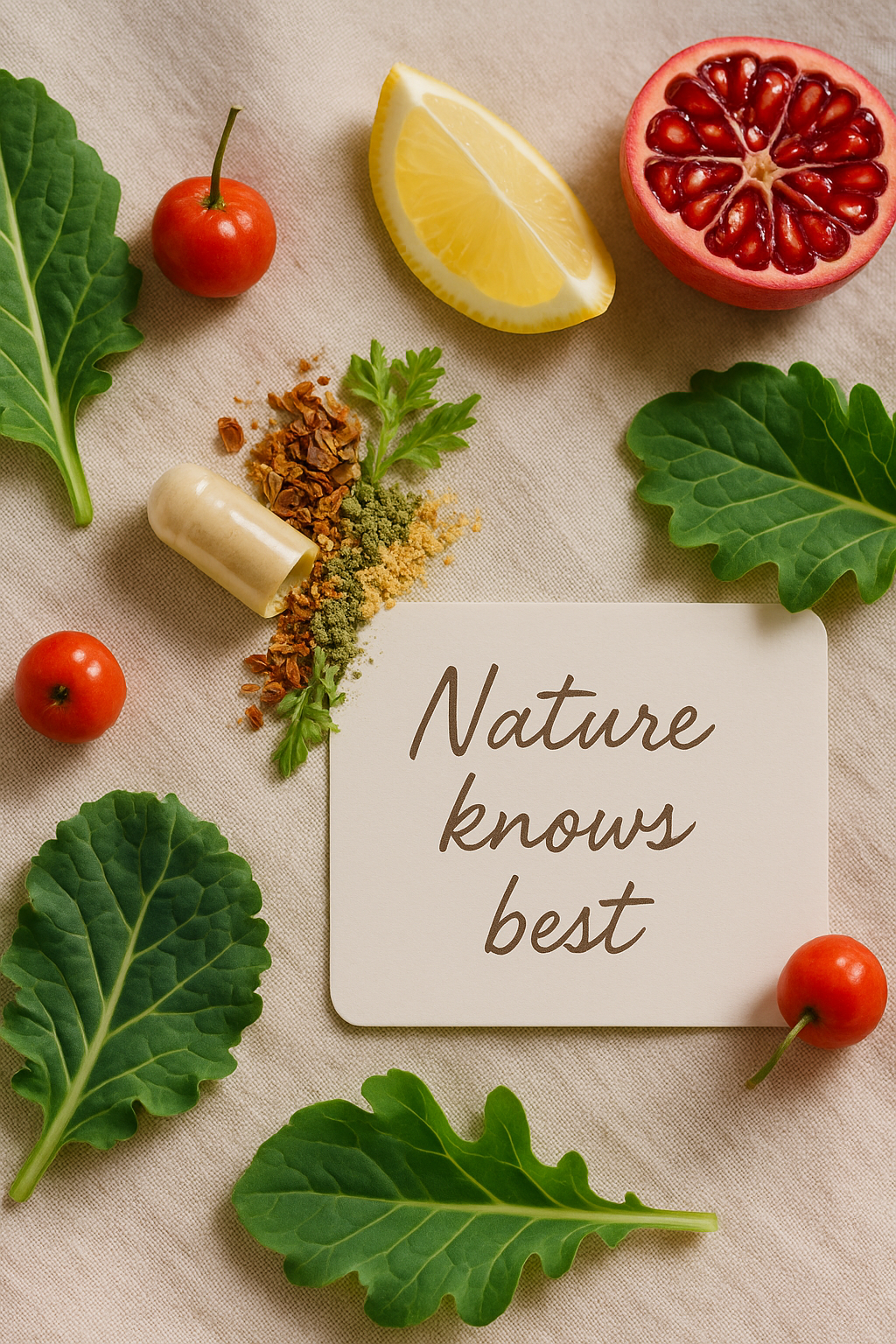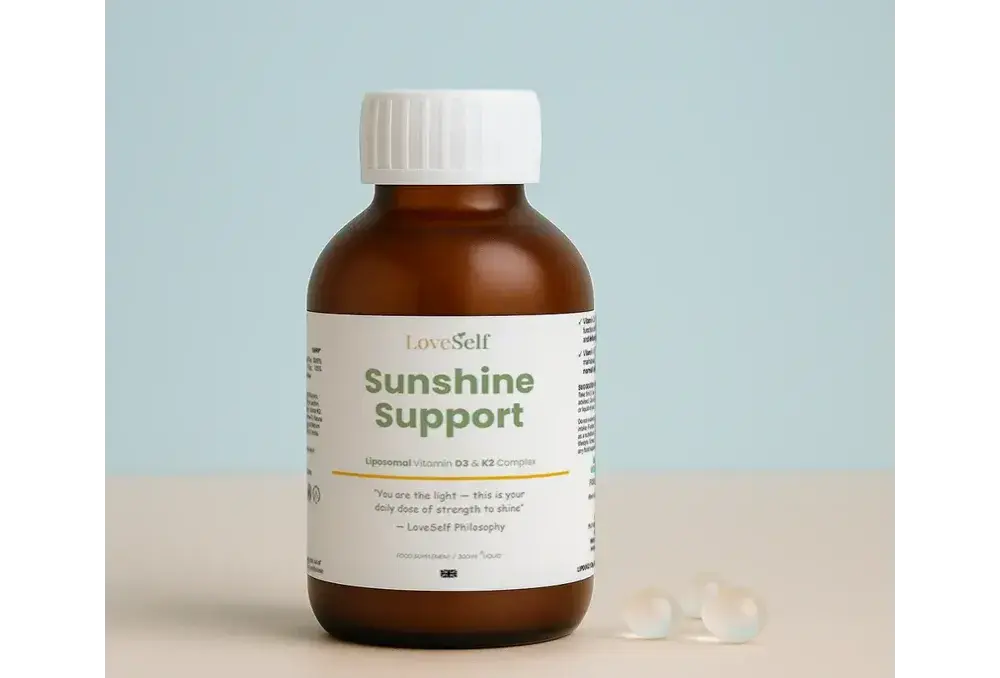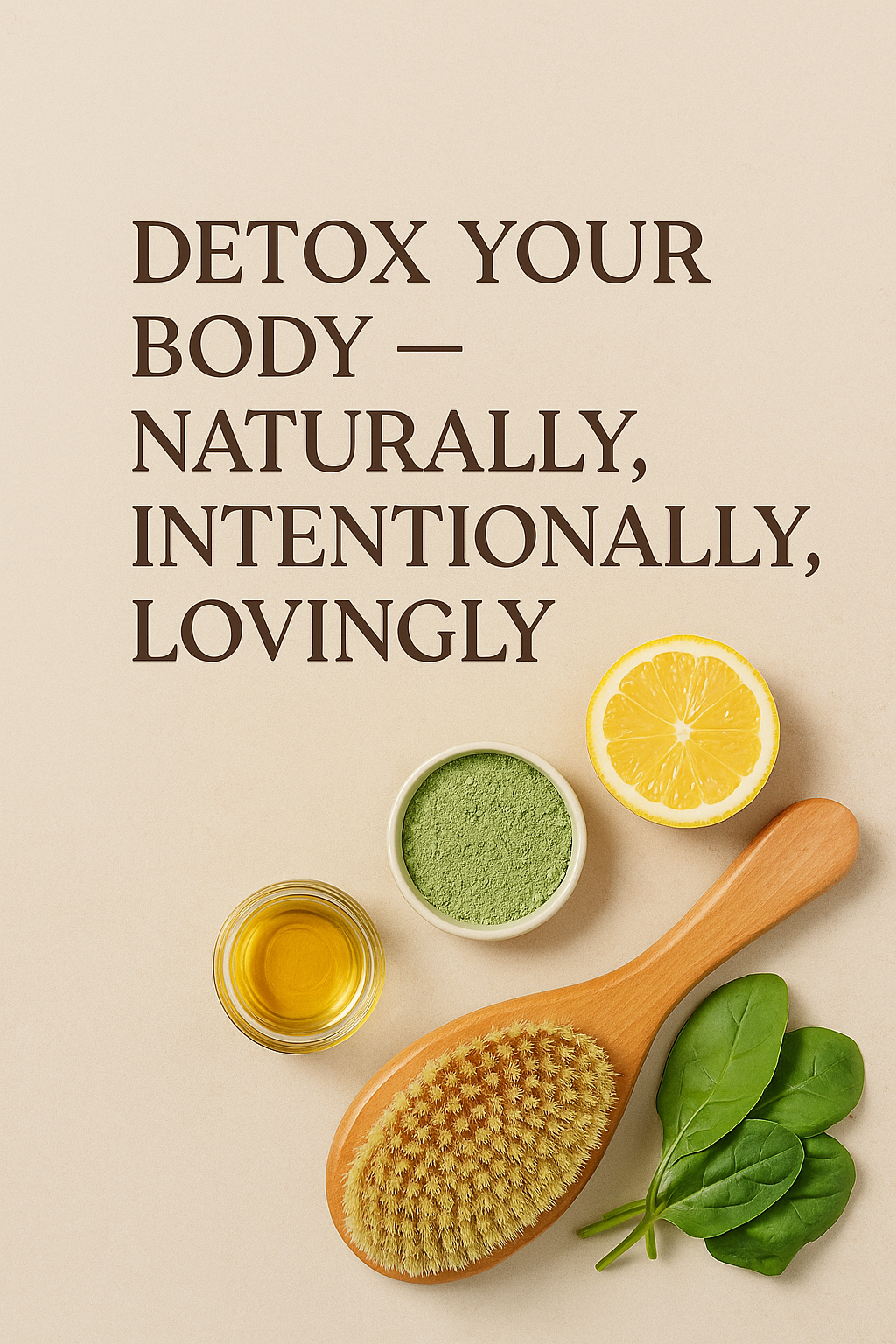Article: What’s in Your Supplements?

What’s in Your Supplements?
Why “Food Form” Matters More Than You Think
More and more women — in the UK and around the world — are turning to natural remedies and alternative wellness to support their energy, immunity, skin, and hormonal balance. But here’s the truth we don’t talk about enough: when it comes to supplements, you get what you pay for.
Walk into any pharmacy or health store and you’ll see shelves overflowing with vitamins, minerals, and herbal capsules. But with prices ranging from pocket change to premium, how do you know what’s worth it?
The answer often lies in what’s inside your supplements — and how your body absorbs them.
Are All Supplements the Same?
Not even close.
Many cheaper vitamins are produced with profit in mind, not your well-being. That’s why the quality and purity of the ingredients should always be your priority. But unfortunately, that’s not always what you get.
If your supplement seems too cheap to be true, check the label. You might find a list of ingredients that do more harm than good.
The Hidden “Extras” in Your Supplements
Many people choose daily supplements to top up their nutrient intake and support overall wellness. But there’s little point in taking them if they’re packed with harmful fillers, preservatives, and artificial additives.
Especially in tablet form, the actual active ingredients (the vitamins or minerals you’re trying to take) might make up just 15% of the product. The other 85%? Often a mix of binders, colourings, sweeteners, dilutents, and other ‘nasties’ your body doesn’t need.
The lower the price, the more likely it is that you’re swallowing these unnecessary extras. So ask yourself — when it comes to your health, isn’t it worth spending a little more for something pure, effective, and beneficial?
Why Cheap Vitamins Often Don’t Work
There are plenty of reasons to avoid low-cost vitamins beyond just poor ingredient quality.
• Some tablets pass through your body undigested, meaning no benefits are absorbed.
• Others can even get stuck in the gut, with no disintegration or release.
• Many cheap “vitamins” are synthetic isolates — chemically created and not easily recognised or utilised by your body.
Let’s take vitamin C as an example. Most supermarket supplements use ascorbic acid, a synthetic compound created from glucose using heat, pressure, and chemicals. It’s not the same as natural vitamin C found in food.
Real vitamin C is a complex, not a single ingredient. It includes bioflavonoids, rutin, Factor K, Factor J, tyrosinase, mineral cofactors, and more. If any of these are missing, there is no true vitamin activity — and your body must draw from its own reserves to make up the difference. Not ideal.
Worse still, ascorbic acid can irritate your digestive tract, especially when taken in high doses. It’s a great example of how synthetic vitamins can backfire.
And it doesn’t stop there. Alpha-tocopherol ≠ vitamin E. Retinoic acid ≠ vitamin A. Many synthetic supplements are stripped of the trace minerals your body needs for proper absorption and function, meaning they deplete your body, rather than nourish it.
Even Dr. Casimir Funk, the scientist who coined the word “vitamin,” said it himself:
“Synthetic vitamins are highly inferior to vitamins from natural sources… and far more toxic.”
So, What Are Food Form Supplements?
Food form supplements (also called food state or whole food supplements) are made to mimic real food as closely as possible — the way your body is designed to absorb nutrients.
Because your body can’t produce most vitamins on its own, it depends on food. But today’s foods are grown in depleted soil, exposed to pollution and pesticides. So even a “healthy” diet might lack the full range of nutrients your body craves.
That’s why many women choose food-form supplements:
• They’re made from real fruits, vegetables, grains, and herbs
• They come in capsule form — no chalky tablets
• They contain zero synthetic additives or harsh binders
• They’re easier to digest, absorb, and utilise
When you take nutrients in food form, your body says, “I know what this is — I can use it.” No strain. No confusion. Just natural nourishment.
Why Go Organic?
If your goal is to feel more energised, balanced, and in tune with your body, going organic is a smart choice, in your food and your supplements.
Organic food form supplements are produced without chemical sprays, artificial fertilisers, or synthetic ingredients. They often contain higher levels of nutrients and fewer toxic metals like mercury, lead, and aluminium.
This means less toxic load on your body — and more support for your long-term wellness.
But What About the Milligrams?
It’s easy to compare supplement labels and worry about “how many mg” of something you’re getting. But with synthetic isolates, milligrams are misleading. They don’t equal effectiveness.
In food form supplements, nutrition works holistically, not in isolated quantities. The synergistic effect of a whole food is more powerful and nourishing than a single high-dose synthetic.
So instead of chasing numbers, trust in the integrity of the source. Natural wins every time.
Let’s Recap — Why Food Form Matters
✨ No harmful additives
✨ No synthetic isolates
✨ Gentle on digestion
✨ Recognised and used by the body
✨ Supportive, not depleting
✨ Whole-food synergy
✨ Real results
At LoveSelf, we believe in nourishment that feels natural, safe, and deeply empowering.




